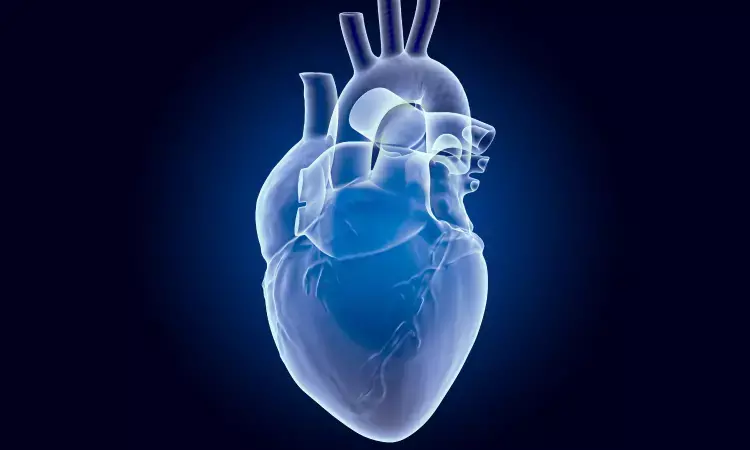- Home
- Medical news & Guidelines
- Anesthesiology
- Cardiology and CTVS
- Critical Care
- Dentistry
- Dermatology
- Diabetes and Endocrinology
- ENT
- Gastroenterology
- Medicine
- Nephrology
- Neurology
- Obstretics-Gynaecology
- Oncology
- Ophthalmology
- Orthopaedics
- Pediatrics-Neonatology
- Psychiatry
- Pulmonology
- Radiology
- Surgery
- Urology
- Laboratory Medicine
- Diet
- Nursing
- Paramedical
- Physiotherapy
- Health news
- Fact Check
- Bone Health Fact Check
- Brain Health Fact Check
- Cancer Related Fact Check
- Child Care Fact Check
- Dental and oral health fact check
- Diabetes and metabolic health fact check
- Diet and Nutrition Fact Check
- Eye and ENT Care Fact Check
- Fitness fact check
- Gut health fact check
- Heart health fact check
- Kidney health fact check
- Medical education fact check
- Men's health fact check
- Respiratory fact check
- Skin and hair care fact check
- Vaccine and Immunization fact check
- Women's health fact check
- AYUSH
- State News
- Andaman and Nicobar Islands
- Andhra Pradesh
- Arunachal Pradesh
- Assam
- Bihar
- Chandigarh
- Chattisgarh
- Dadra and Nagar Haveli
- Daman and Diu
- Delhi
- Goa
- Gujarat
- Haryana
- Himachal Pradesh
- Jammu & Kashmir
- Jharkhand
- Karnataka
- Kerala
- Ladakh
- Lakshadweep
- Madhya Pradesh
- Maharashtra
- Manipur
- Meghalaya
- Mizoram
- Nagaland
- Odisha
- Puducherry
- Punjab
- Rajasthan
- Sikkim
- Tamil Nadu
- Telangana
- Tripura
- Uttar Pradesh
- Uttrakhand
- West Bengal
- Medical Education
- Industry
Catheter ablation treatment for AF may improve severe psychological distress

One-third of patients with Atrial Fibrillation or AF experience severe depression and anxiety. Do these patients benefit from Catheter ablation?
In a recent JAMA study, researchers have said that those with a history of AF will likely benefit from catheter ablation to improve psychological symptoms of anxiety and depression. They mentioned catheter ablation to be superior in relieving psychological symptoms in addition to relieving physical symptoms of AF. They marked improvement in health-related quality of life, which has already been demonstrated in previous studies.
The impact of AF catheter ablation on mental health outcomes requires more data and research. This was further investigated in a recent study including 65 men and 31 women, with a mean age of 59. The study was conducted in two AF centres in Australia. [Randomized Evaluation of the Impact of Catheter Ablation on Psychological Distress in Atrial Fibrillation (REMEDIAL) Study]
The key points of the study are:
- A total of 100 patients were randomized, and 96 were analyzed.
- Fifty-two patients were in the catheter ablation group. (within one month of randomization).
- Forty-eight patients were in the medical therapy group (optimization of antiarrhythmic therapy to maintain such rhythm.
- The primary outcome was a combined hospital anxiety and depression scale (HADS) score at 12 months (range 0-42). The higher the score, the more severe the symptoms.
- Considering the ablation group, successful pulmonary vein isolation was achieved in all participants.
- At six months, the combined HADS score was lower in the ablation group vs. the medical group (8.2 vs. 11.9 [7.2]. At 12 months, it was 7.6 vs. 11.8, with a between-group difference of −4.17.
- The ablation group had a lower prevalence of severe psychological distress than the medical therapy group at six months and 12 months, with 14.2% vs. 34% and 10.2% vs. 31.9%.
- The anxiety HADS score at 6 and 12 months was 4.7 vs. 6.4 and 4.5 vs. 6.6.
- The depression HADS score at 3, 6 and 12 months was 3.7 vs. 5.2, 3.4 vs. 5.5 and 3.1 vs. 5.2 respectively.
- BDI-II score at 6 and 12 months was 7.2 vs. 11.5 and 6.6 vs. 10.9 respectively.
- The median AF burden in the ablation group was lower than in the medical therapy group, with recordings as 0% vs. 15.5%.
They said, “We noted Improvement of severe psychological distress as an additional benefit of catheter ablation for management of atrial fibrillation.”
The study has Limitations, such as the inability to rule out the possibility of a differential procedure-related placebo effect on study outcome, adherence to medical therapy among participants in the medical group was self-reported, and occult asymptomatic AF may have gone undetected.
Reference:
Al-Kaisey AM, Parameswaran R, Bryant C, et al. Atrial Fibrillation Catheter Ablation vs Medical Therapy and Psychological Distress: A Randomized Clinical Trial. JAMA. 2023;330(10):925–933. doi:10.1001/jama.2023.14685
BDS, MDS in Periodontics and Implantology
Dr. Aditi Yadav is a BDS, MDS in Periodontics and Implantology. She has a clinical experience of 5 years as a laser dental surgeon. She also has a Diploma in clinical research and pharmacovigilance and is a Certified data scientist. She is currently working as a content developer in e-health services. Dr. Yadav has a keen interest in Medical Journalism and is actively involved in Medical Research writing.
Dr Kamal Kant Kohli-MBBS, DTCD- a chest specialist with more than 30 years of practice and a flair for writing clinical articles, Dr Kamal Kant Kohli joined Medical Dialogues as a Chief Editor of Medical News. Besides writing articles, as an editor, he proofreads and verifies all the medical content published on Medical Dialogues including those coming from journals, studies,medical conferences,guidelines etc. Email: drkohli@medicaldialogues.in. Contact no. 011-43720751


